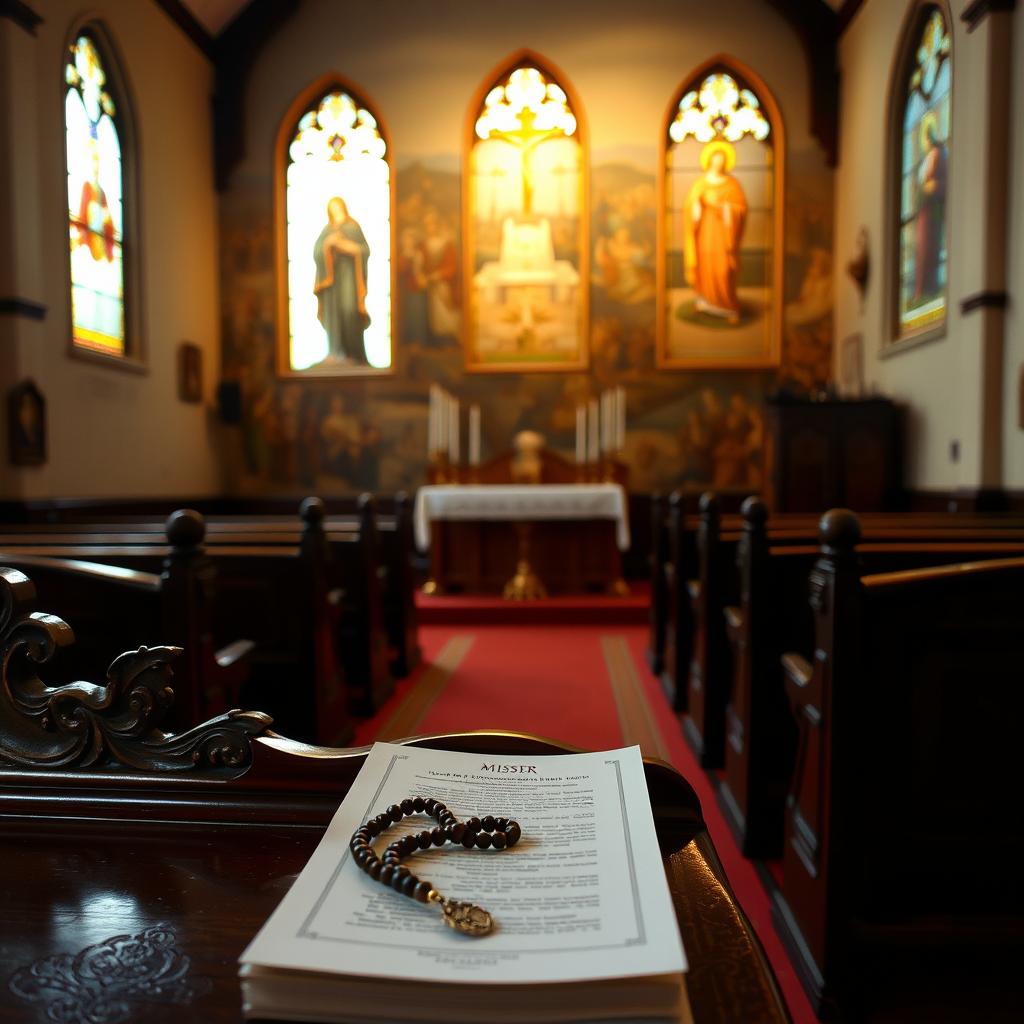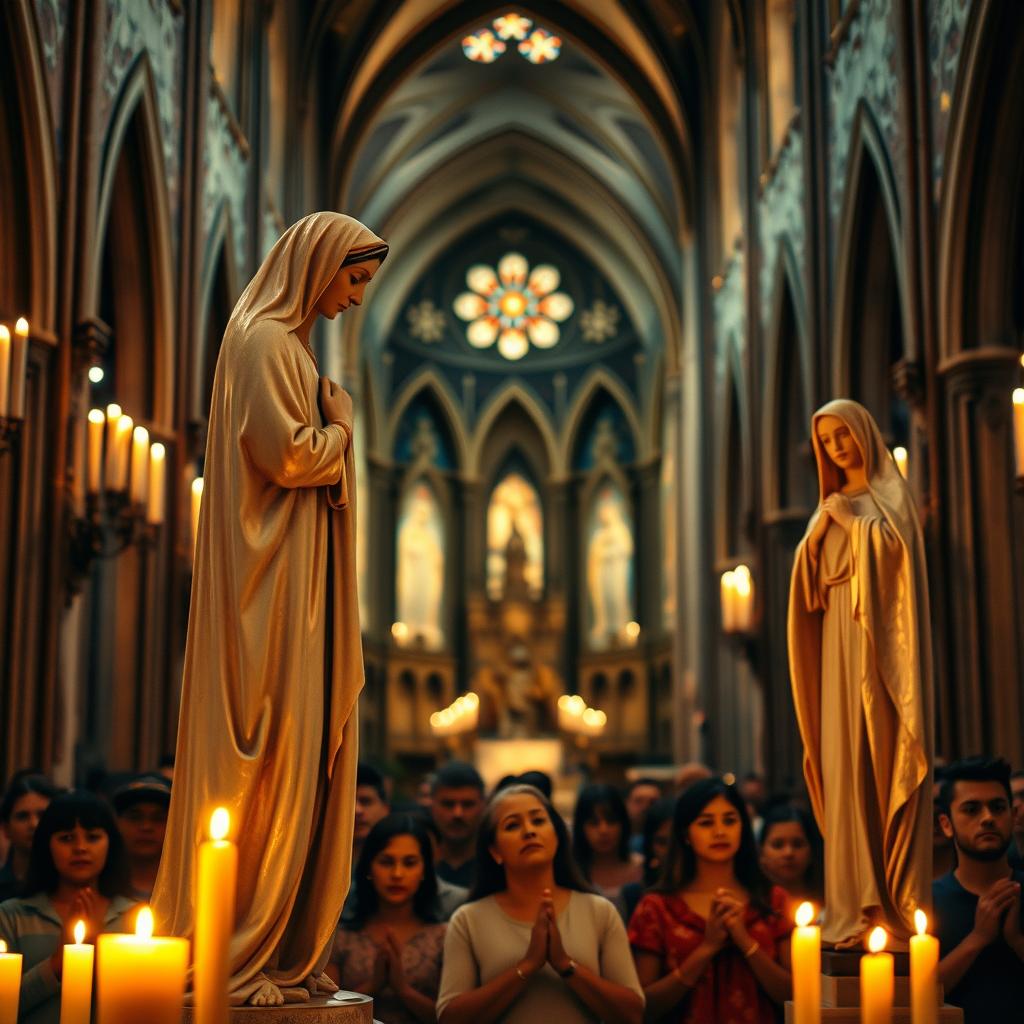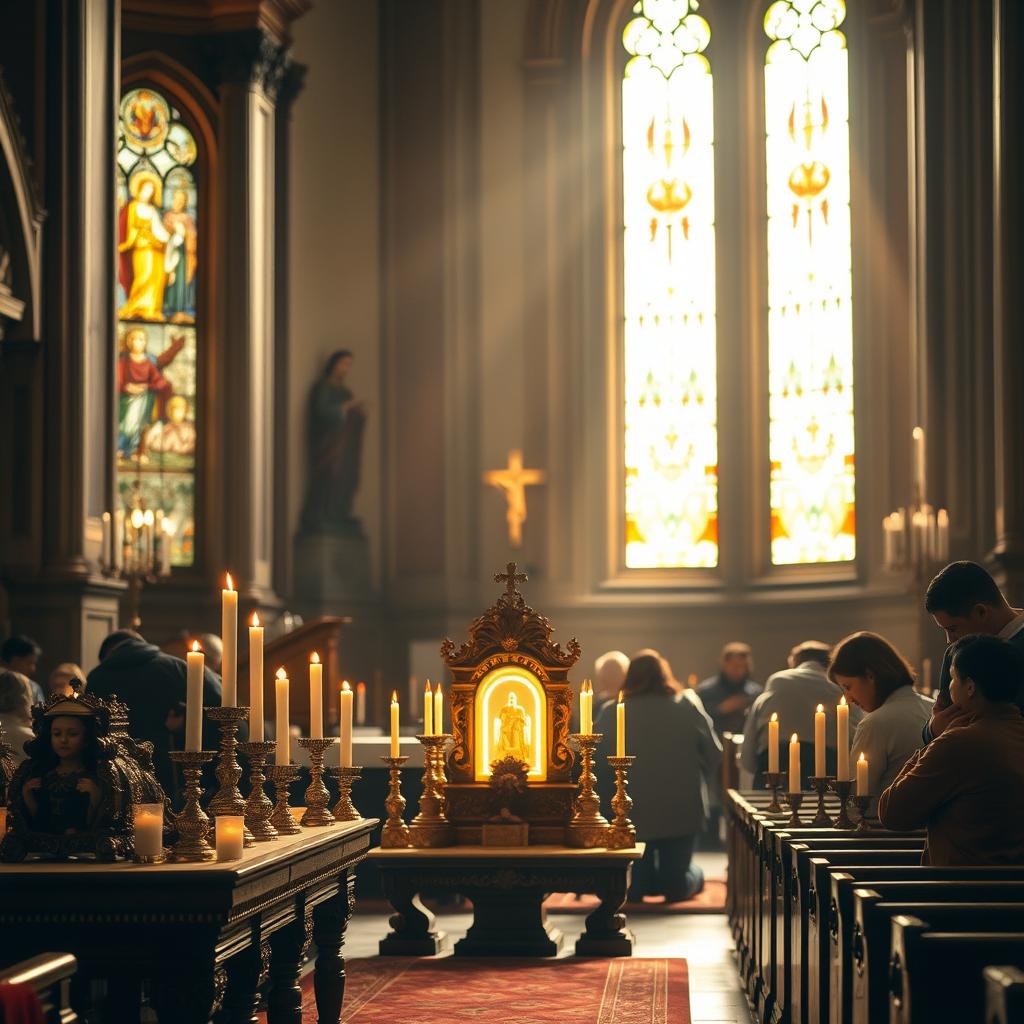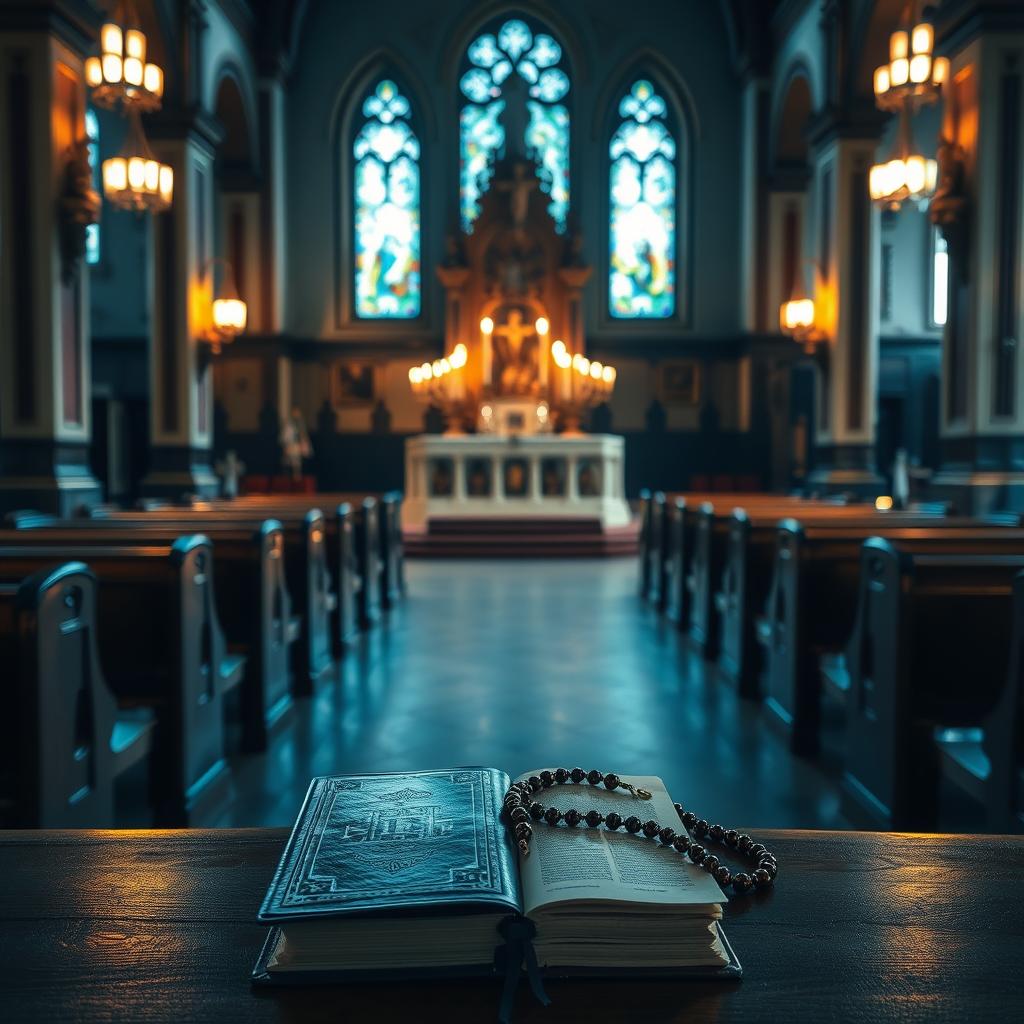Foundational devotions have been a cornerstone of spiritual growth for centuries. These timeless practices connect believers to a rich tradition that spans over 2,000 years. Through basic Catholic prayers, individuals experience personal transformation and strengthen their bond with the Holy Spirit and the community.
Key devotions like the Our Father, Hail Mary, and Apostles’ Creed are deeply rooted in faith.
They invite us to reflect on the teachings of Jesus Christ and the intercession of the Virgin Mary. These prayers serve as a bridge between personal devotion and communal worship.
Whether you’re new to these practices or seeking to deepen your faith, this guide offers a meaningful way to connect with the Father Almighty and the Church’s spiritual heritage.
Let these devotions inspire your journey and bring you closer to the heart of faith.
See Full Information on: Catholic Weddings: Timeless Traditions, Personalized Celebrations
Meaning of spiritual warfare: Spiritual Warfare: Subtle Signs And Basic Guide To Fight And Win
The Foundation of Catholic Prayer Life
Prayer serves as the heartbeat of a believer’s spiritual journey. It is a vital dialogue with God, as emphasized in the Catechism of the Catholic Church.
Through prayer, individuals connect with the holy catholic church and deepen their relationship with the divine.
Prayer is not just a ritual but a lifeline. It nourishes the soul and strengthens faith.
The believe holy spirit guides believers in this sacred practice, helping them find peace and purpose.
Why Prayer Matters in Catholicism
Prayer is essential for spiritual growth. It aligns believers with God’s will and fosters a sense of unity within the communion saints.
The four purposes of prayer—adoration, contrition, thanksgiving, and supplication—form the foundation of this practice.
| Purpose | Description |
|---|---|
| Adoration | Praising God for His greatness and majesty. |
| Contrition | Seeking forgiveness sins and expressing remorse. |
| Thanksgiving | Gratitude for blessings and divine providence. |
| Supplication | Asking for God’s help and guidance in daily life. |
How to Approach Basic Catholic Prayers
Jesus taught the Our Father as a model for prayer. It emphasizes adoration, petition, and thanksgiving. This prayer invites believers to trust in God’s plan and seek His will.
Creating a sacred space for prayer can enhance focus and devotion. Set aside a quiet corner with a Bible, candles, or religious images.
Consistency is key—establish a daily routine to nurture your spiritual life.
Challenges like distractions or busy schedules are common. Start small, perhaps with a few minutes of prayer each day.
Over time, this practice will become a source of strength and life everlasting.
Essential Daily Prayers Every Catholic Should Know
Daily devotions anchor believers in their spiritual journey, offering moments of reflection and connection.
These prayers, rooted in scripture and tradition, provide a framework for worship and personal growth.
They invite us to pause, reflect, and draw closer to the divine.

The Our Father: Jesus’ Perfect Prayer
Taught by Jesus during the Sermon on the Mount, the Our Father is a model of perfect prayer.
It begins with hallowed thy name and thy kingdom come, emphasizing God’s holiness and sovereignty.
The seven petitions within this prayer guide believers to seek God’s will, forgiveness, and daily sustenance.
| Petition | Meaning |
|---|---|
| Hallowed be thy name | Honoring God’s holiness and majesty. |
| Thy kingdom come | Praying for God’s reign on earth. |
| Give us this day our daily bread | Asking for physical and spiritual nourishment. |
| Forgive us our trespasses | Seeking God’s mercy and forgiveness. |
| Lead us not into temptation | Asking for strength to resist sin. |
| Deliver us from evil | Praying for protection from harm. |
The Hail Mary: Honoring the Mother of God
The Hail Mary draws from the words of St. Gabriel and Elizabeth in Luke 1:28,42. It begins with full grace, acknowledging Mary’s unique role in salvation history.
The prayer concludes with a plea for her intercession, reflecting her closeness to Jesus, the blessed fruit of her womb.
Glory Be: Praising the Holy Trinity
The Glory Be is a short yet profound prayer honoring the Father, Son, and Holy Spirit.
It encapsulates the mystery of the Trinity, reminding believers of God’s eternal presence and glory.
Saints like St. Ignatius often used this prayer to center their hearts on God’s majesty.
For non-Latin speakers, pronouncing these prayers can be a challenge.
Take time to learn their cadence and meaning. Let these devotions inspire your daily walk with God and deepen your spiritual journey.
Professions of Faith: Creeds That Unite Believers
Professions of faith have long served as a unifying force among believers.
These creeds, rooted in centuries of tradition, express the core doctrines of Christianity.
They connect individuals across time and space, affirming shared beliefs in the divine.

The Apostles’ Creed in Daily Practice
The Apostles’ Creed is a foundational declaration of faith. It begins with belief in God the Father and Jesus Christ, conceived holy spirit and born virgin mary.
This creed encapsulates the essence of Christian belief in a concise and powerful way.
Phrases like “descended into hell” and “resurrection of the body” hold deep theological significance. They remind believers of Christ’s victory over death and the promise of eternal life.
Reciting this creed daily strengthens faith and reinforces these truths.
Nicene Creed: A Deeper Declaration
The Nicene Creed expands on the Apostles’ Creed, offering a more detailed profession of faith. It emphasizes Christ’s divinity, stating He suffered pontius pilate, died, and ascended heaven.
This creed was formulated to combat heresies and clarify essential doctrines.
Belief in the resurrection body is a central theme, affirming the hope of bodily resurrection.
The Nicene Creed is often used in liturgical settings, uniting believers in a shared declaration of faith.
Both creeds serve as tools for catechesis and sacramental preparation. They guide new believers in understanding the fullness of apostolic teaching.
Memorizing these texts can deepen one’s spiritual journey and foster a sense of unity within the Church.
“The creeds are a treasure of the soul, a spiritual seal that unites us in faith.”
Whether recited privately or communally, these professions of faith continue to inspire and unite believers worldwide.
The Power of Marian Devotions
Marian devotions hold a special place in the hearts of believers, offering a pathway to deeper spiritual connection. Mary, the Mother of God, is revered for her unique role in salvation history.
Her intercession is sought by those who trust in her closeness to Jesus, the blessed fruit of her womb.

Devotion to Mary is distinct from worship. While worship is reserved for God alone, veneration honors Mary as the blessed virgin and a model of faith.
This distinction is vital in understanding her place in spirituality.
Countless testimonies highlight Mary’s powerful intercession. Many believers have experienced her guidance in moments of need, especially at the hour of death.
Her role as a mediator brings comfort and hope to those who pray with sincerity.
The Rosary is a cornerstone of Marian devotion. Rooted in biblical events, it invites believers to meditate on the lives of Jesus and Mary.
Its prayers, like the Hail Mary, ask for her intercession: “Holy Mary, Mother of God, pray for us sinners, now and at the hour of our death.”
Lesser-known devotions, such as the Angelus, also enrich spiritual life. This prayer, traditionally recited three times a day, focuses on the Annunciation and Mary’s fiat. It reminds us of her humility and obedience to God’s will.
“Mary’s heart, the immaculate heart, is a refuge for all who seek her guidance. Her love and purity inspire us to draw closer to her Son.”
Through these devotions, believers find strength, solace, and a deeper connection to their faith. Mary’s intercession continues to inspire and transform lives, guiding souls toward the heart of God.
Sacramental and Intercessory Prayers
Sacramental and intercessory prayers bridge the gap between personal devotion and divine intervention.
These prayers serve distinct purposes, offering believers a way to seek God’s mercy and protection.
While sacramental prayers are tied to specific rites like Reconciliation, intercessory prayers call upon saints and angels for guidance and defense.

Act of Contrition: Seeking God’s Mercy
The Act of Contrition is a heartfelt prayer of repentance, often recited during the Sacrament of Reconciliation.
It expresses sorrow for sins and a firm resolve to avoid them in the future. This prayer highlights the believer’s desire for God’s forgiveness and divine mercy.
One version begins, “O my God, I am heartily sorry for having offended Thee.” Another emphasizes, “My God, I am sorry for my sins with all my heart.”
Both versions reflect a deep commitment to turning away from sin and seeking God’s grace.
An examination of conscience often precedes this prayer, helping believers reflect on their actions and intentions. This practice fosters spiritual growth and a closer relationship with God.
Prayer to St. Michael the Archangel for Protection
The Prayer to St. Michael is a powerful intercessory prayer, endorsed by the Vatican since 1886.
It calls upon St. Michael, the leader of the heavenly host, for protection against evil spirits and spiritual battles.
This prayer is particularly relevant in modern culture, where spiritual warfare remains a pressing concern.
The prayer begins, “St. Michael the Archangel, defend us in battle.” It asks for defense against the devil’s schemes and for the safety of souls.
Many believers turn to this prayer for strength in their protection battle against unseen forces.
“St. Michael’s intercession reminds us that we are never alone in our struggles. His strength and courage inspire us to face challenges with faith.”
Reciting this prayer daily can provide a sense of security and peace, knowing that divine protection is always near.
Basic Catholic Prayers for Mealtime and Grace
Gratitude at the table connects us to the divine in everyday life. Mealtime prayers, often called grace meals, are a beautiful way to acknowledge God’s provision.
They remind us of the daily bread we receive and the bounty christ offers through His love.

These prayers are not just rituals but moments of reflection.
They help us pause and appreciate the gifts before us. Families can create meaningful dining traditions by incorporating these devotions into their daily routines.
Pre and Post-Meal Prayers
Here are some traditional prayers to enrich your grace meals:
| Prayer | Purpose |
|---|---|
| Bless us, O Lord, and these thy gifts which we are about to receive from thy bounty, through Christ, our Lord. Amen. | Pre-meal prayer to thank God for His provision. |
| We give you thanks, Almighty God, for all your benefits, who live and reign forever. And may the souls of the faithful departed, through the mercy of God, rest in peace. Amen. | Post-meal prayer to express gratitude and remember the departed souls. |
These prayers connect us to the Eucharist, the ultimate spiritual feast. They remind us that every meal is a gift from God and an opportunity to grow closer to Him.
Multicultural Traditions
Across cultures, Catholics have unique ways of expressing gratitude at the table. From the Sufi Meal Prayer to the Troparion, these traditions highlight the universal nature of faith.
They teach us to see God’s hand in every aspect of life.
Creating a prayerful dining ritual can strengthen family bonds. It encourages mindfulness and gratitude, turning ordinary meals into sacred moments.
Prayers for the Departed
Mealtime is also a time to remember loved ones who have passed. The prayer for eternal rest asks God to grant peace to the departed souls. It reminds us of the hope we have in Christ’s promise of resurrection.
“May the souls of the faithful departed, through the mercy of God, rest in peace. Amen.”
These prayers enrich our spiritual lives and deepen our connection to God. They transform everyday moments into opportunities for faith and reflection.
Prayers for the Departed and Eternal Rest
Honoring the departed through prayer is a timeless act of love and faith. The Church teaches that praying for the deceased is a powerful way to support their journey to eternal peace.
These prayers remind us of the hope we have in God’s mercy and the promise of resurrection.

Ancient funeral liturgies, like the Requiem Mass, continue to provide comfort to the grieving.
These traditions connect us to centuries of faith, offering a sense of continuity and hope.
The ‘Eternal Rest’ prayer, for example, is a simple yet profound way to ask for God’s perpetual light to shine upon the faithful departed.
Creating a home altar for deceased loved ones can deepen this connection. Place a photo, candle, or religious item on a small table. Use this space to pray for their souls rest and reflect on their legacy.
This practice fosters a sense of closeness and spiritual unity.
Misconceptions about purgatory often arise. The Church teaches that purgatory is a state of purification, not punishment. Praying for the deceased helps their souls prepare for the fullness of God’s presence.
As the Catechism of the Catholic Church states, “All who die in God’s grace and friendship, but still imperfectly purified, are indeed assured of their eternal salvation.”
“Eternal rest grant unto them, O Lord, and let perpetual light shine upon them. May they rest in peace. Amen.”
These prayers and practices remind us of the enduring bond between the living and the departed. They offer comfort, hope, and a way to honor those who have gone before us in faith.
Traditional Catholic Prayers for Spiritual Warfare
In the battle against unseen forces, spiritual warfare prayers offer strength and protection. Ephesians 6:10-18 reminds us to “put on the full armor of God” to stand firm against the schemes of the evil enemy.
These devotions are not just words but powerful tools for divine protection and victory in the unseen battle.

The Rosary, often called a spiritual weapon, is a cornerstone of this practice. Saints like St. Dominic and St. Josemaría Escríva praised its effectiveness in combating darkness.
Meditating on the mysteries of Christ’s life while reciting the Hail Mary invites God’s grace into our struggles.
Armor of God: The Rosary and Chaplet
The Rosary is more than a string of beads; it’s a shield against the forces of hell satan. Each decade represents a piece of the armor of God, from the belt of truth to the sword of the Spirit.
Praying the Chaplet of Divine Mercy also strengthens believers, offering hope and mercy in times of crisis.
Exorcism-approved prayers, like the St. Michael Prayer, are essential in spiritual warfare.
Composed by Pope Leo XIII, this prayer calls upon the archangel to defend us in battle. It’s a powerful plea for protection against the evil enemy and all forms of spiritual harm.
Guardian Angel Prayer for Daily Guidance
Our guardian angel is a constant companion, guiding us through life’s challenges. The Guardian Angel Prayer is a simple yet profound way to seek their intercession.
It reminds us that we are never alone, even in the fiercest battles.
“Angel of God, my guardian dear, to whom God’s love commits me here, ever this day be at my side, to light and guard, to rule and guide. Amen.”
In moments of crisis, turning to these prayers can bring peace and clarity.
Whether facing personal struggles or spiritual attacks, these devotions remind us of God’s unwavering presence and protection.
Living a Prayerful Life in Modern Times
In today’s fast-paced world, maintaining a prayerful life requires intentionality and adaptability. Technology, while often a distraction, can also enhance digital devotion.
Apps like Hallow and iBreviary offer Vatican-approved resources, making it easier to integrate prayer into daily routines.
Balancing work, family, and a contemplative life can be challenging. Start small—dedicate a few minutes each day to prayer.
Create a sacred space at home, free from distractions, to foster focus and peace. This practice helps navigate secular challenges while staying grounded in faith.
Teaching children traditional prayers can strengthen family prayer traditions.
Use simple, engaging methods like storytelling or visual aids to make it meaningful. Encourage them to pray aloud, fostering a sense of connection and confidence in their faith journey.
Despite the noise of modern life, perseverance in prayer brings profound rewards.
Let your prayer habits be a source of strength, guiding you through every season. Embrace the call to live as a modern catholic, rooted in timeless devotion yet adaptable to the world around you.





